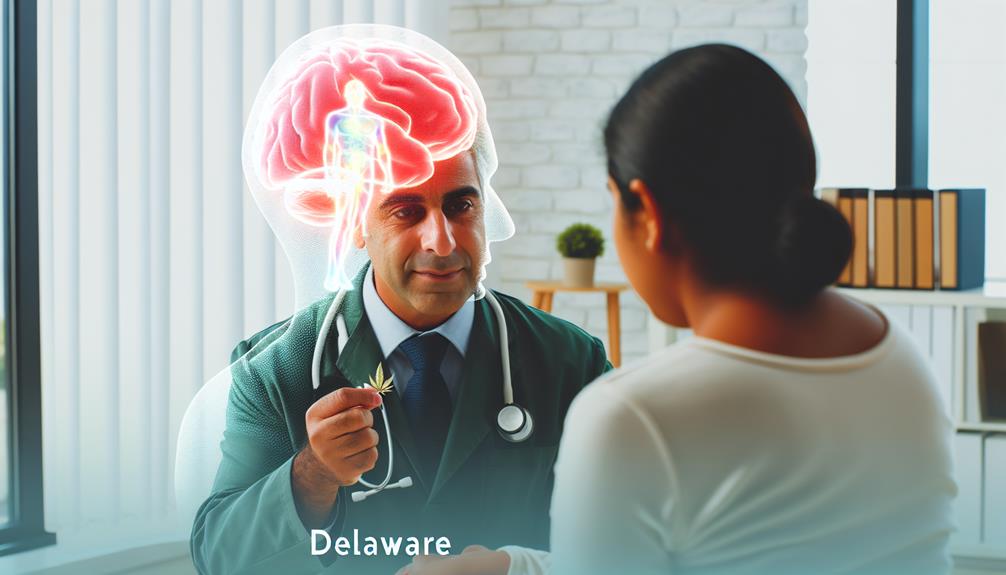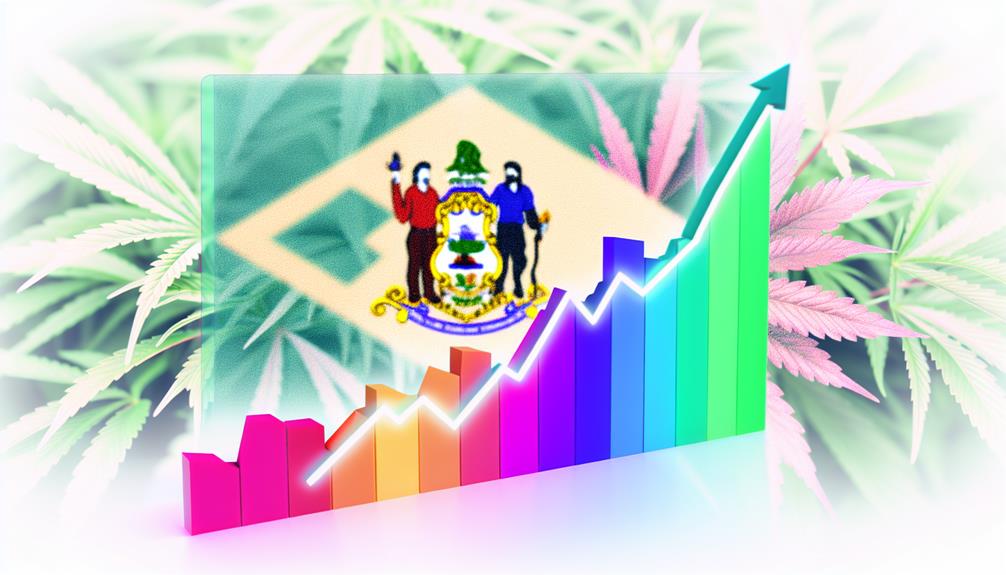You may not be aware, but in 2015, Delaware added PTSD to its list of qualifying conditions for medical marijuana. This move has been a game changer for many sufferers who have found little relief in traditional treatments. With this new approach, patients are experiencing significant alleviation of symptoms such as severe anxiety, flashbacks, and sleeplessness. But how exactly does cannabis help? And what does this mean for the future of PTSD treatment? Let’s explore further.
Table of Contents
Understanding PTSD: A Brief Overview

While most people associate post-traumatic stress disorder (PTSD) with military veterans, it’s vital to understand that this mental health condition can affect anyone who’s experienced a traumatic event. You’re not alone if you’re grappling with this. Your trauma isn’t your fault, and the journey to recovery can begin with understanding and symptom management.
PTSD typically surfaces after exposure to a traumatic event, causing sufferers to relive their trauma through nightmares, flashbacks, or intrusive thoughts. This can lead to emotional distress, physical reactions, or even avoidance of situations that may trigger memories of the trauma.
It’s not uncommon for those affected to experience changes in their thoughts and mood, often feeling detached or estranged from others.
Managing these symptoms is a significant part of trauma recovery. It’s about regaining control and reducing the power of the trauma over your life.
Creating a safe environment, establishing routines, and practicing self-care are all essential aspects of symptom management.
Current Treatment Options for PTSD
There are myriad treatment options available to those battling PTSD, each with its own set of potential benefits and drawbacks. Traditional methods typically involve a mix of psychotherapy and medication. Cognitive therapy is a commonly used approach that helps you understand and change thought patterns that lead to harmful behavior and emotions.
Cognitive therapy can prove to be a lifeline; it’s designed to help you cope with the emotional and psychological fallout of traumatic events. It’s about learning to identify problematic thoughts and working to replace them with a more balanced perspective.
However, like all treatments, it’s not a one-size-fits-all solution. Some individuals may find it less effective or struggle with side effects from accompanying medications which can range from nausea to sleep disturbances.
Alternative treatments are gaining traction offering new hope for those who haven’t found success with traditional methods. These can include techniques like yoga meditation or acupuncture.
They’re worth considering particularly if you’re open to exploring different ways to manage your symptoms. Remember it’s about finding what works best for you in consultation with your healthcare provider.
The Rise of Medical Marijuana in Delaware

With traditional PTSD treatment methods not always hitting the mark Delaware has joined the ranks of states turning a hopeful eye towards medical marijuana. This shift mirrors a broader trend across the nation fueled by both legal developments and changing societal attitudes towards this medicine.
Consider four key factors that have contributed to this rise:
- Legalization: Delaware legalized medical marijuana in 2011 making it possible for patients with qualifying conditions access this treatment.
- Expansion of Qualifying Conditions: Initially PTSD wasn’t a qualifying condition for medical marijuana in Delaware however due lobbying efforts growing evidence changed 2015.
- Patient Accessibility: There’s been significant effort improve patient accessibility including opening more dispensaries home delivery options.
- Public Support: Broad public support medical marijuana helped drive these developments.
The essence Delaware’s journey medical marijuana adapting new knowledge possibilities ensuring loved ones best options managing PTSD stay tuned understand offers approach next subtopic
The Rise Medical Marijuana New Approach For Ptsd

